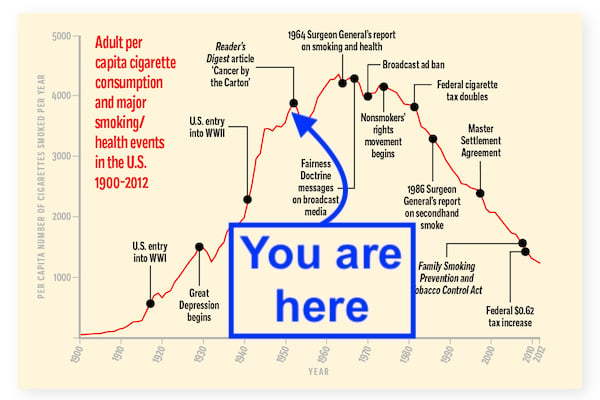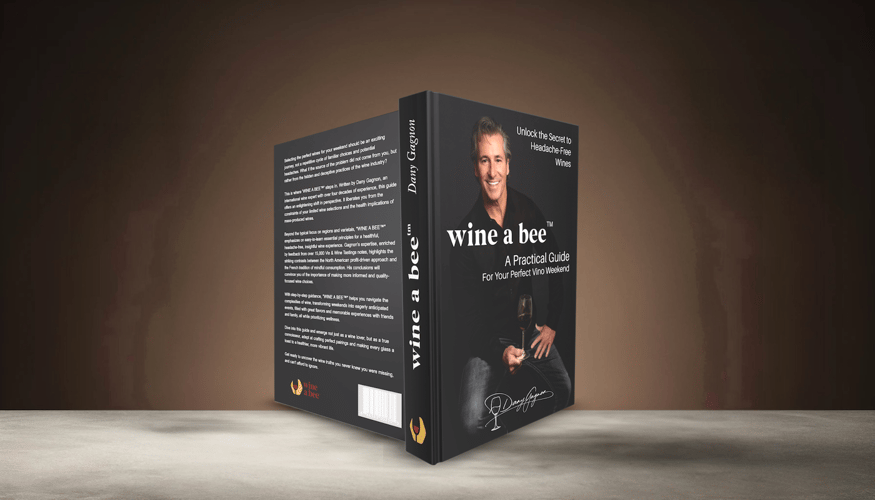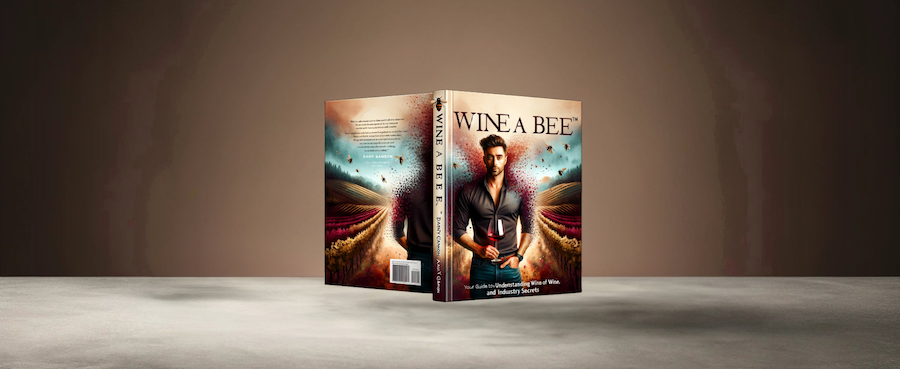Why it's the most important wine book you'll ever read
In North America, wine is often reserved for the weekends. Why? It's quite practical, really—should a headache or other side effects occur, you have Sunday to recover before the Monday routine.
This habit is in stark contrast to French culture, where wine is a daily ritual appreciated for its qualities to enhance the flavors of meals, aid digestion, and even contribute to patient care in hospitals. What can you learn from these differing behaviors toward wine?
If you've experienced wine in France, you have probably noticed the difference. Many say they can enjoy plenty of wine there without headaches or side effects, but back in North America, even a single glass can induce drowsiness and headaches. Is it just the vacation atmosphere, or is there more at play?
Contrary to popular belief, it's not due to sulfites. Speaking of which, isn't it odd that warnings about sulfites are exclusive to wine bottles, although they're present in most food products, in much larger quantities?
Wine, uniquely among food products, doesn't come with an ingredient list. Even bottled water has a long list of ingredients – so why the lack of transparency with wine?
Consider Morley Safer's 60 Minutes report on the French Paradox, a revelation from the '90s that highlighted red wine as a healthful tonic and tripled its sales in North America. But beyond the buzz—how does wine genuinely affect you after a couple of glasses?
If you've experienced headaches, redness, or fatigue, you're not alone. In my wine tastings, nearly 95% of participants report these unwelcome aftereffects. Alarmingly, the 5% unaffected have grown so accustomed, that their bodies no longer signal the danger, exposing them to potential health risks, including serious illnesses.
Experiencing headaches from just a glass or two isn't minor—it signals serious concern. Such symptoms suggest the presence of chemicals overloading your system, akin to blood poisoning. Your liver fights silently against chemicals onslaughts it's ill-equipped to manage.
What if your weekend wine habit was subtly undermining your health? Without a thorough knowledge of every ingredient in your wine, your relaxation habit could be eroding your health.
In January 2023, the Canadian Centre on Substance Use and Addiction (CCSA) issued a stark warning, urging wine consumers to moderate their consumption—capping it at one glass per week for women and two for men. This advisory wasn't arbitrary; it was anchored in disturbing findings linking alcohol consumption to 14,000 fatalities and numerous cancer diagnoses across Canada. On the other side of the border, the United States confronts its own sobering reality, with approximately 95,000 alcohol-related deaths each year, as reported by the National Council on Alcoholism and Drug Dependence (NCDAS). These figures from both nations underline the critical need for a cautious and informed approach to alcohol consumption.
These recommendations broadly address 'alcohol' consumption without distinguishing the varied side effects specific to different beverages, such as cider, vodka, whiskey, and beer. This raises the question: why such a generalization? Have you noticed the differences in side effects between each of those forms of alcohol?
The wine industry worldwide is quietly increasing its profit margins from your ignorance, selling you a food product worth a staggering $340 billion annually without you knowing its composition. This lack of transparency gives them "carte blanche" to use whatever ingredients they wish. And while they’re distracting you with the sulfites, the addition of 500 other chemicals goes unnoticed.
Referring back to the 1950s, when smoking was fashionable, only to realize later that the tobacco industry prioritized profit over public health—a pattern mirrored in the wine industry. Ignorance could cost you more than you think.

Never let others profit from your lack of knowledge.
Here's the bottom line: if you're drinking more than a glass of wine per week, you live in Canada or the USA, and your health is a priority, this book is essential. Leveraging four decades of industry experience and enriched by hard data and insights of over 15,000 individuals like you. More than just informative, this book is transformative, as echoed by attendees. They have rekindled their fervor for wine, free from concerns of aftereffects, and revitalized their health and energy.
It's not about the words I share; it's about the evidence that backs them up. Through tasting notes and testimonials, I showcase the profound, positive impact this understanding has on lives and health. It transcends anecdotes to become a testament to change.
Committed to healthy living, like you, my participants believed they had made conscious choices—opting for organic produce, reducing chemical intake, and never compromising on consumption quality. They cherished wine moments on weekends, thinking they were choosing wisely. Yet, they discovered paying more for quality food was futile if negated by consuming just one bottle of wine selected randomly.
Collaborating with healthcare professionals, I've helped identify signs of potentially harmful wine consumption. Conversations with cancer patients wishing for the knowledge you have access to today have been impactful. These individuals, sought first and foremost, prevention, not just recovery.
This unique book in its genre, isn't just about wine's downsides; it's about understanding the wine world from the bottom up, creating a solid foundation that you can use to your advantage. It's your hands-on guide for integrating wine effortlessly into your active, health-conscious lifestyle.
This book demystifies the intricate wine industry, breaking down its complexities into understandable chunks. By the turn of the last page, you'll be equipped with practical skills to choose, pair, store, prepare, and serve your wine. You'll effortlessly navigate wine conversations, elevating your social presence and influence. It will empower you to be a beacon of wisdom for your loved ones, guiding them to make informed wine choices and so much more.
Ultimately, WINE A BEE™ mirrors the elements of success of my wine-tasting workshops—educational, evidence-based, and irresistibly engaging. It’s an invitation to enrich your weekends with discovery, to become an informed connoisseur, to marry gastronomy and health, and to infuse joy and knowledge into every sip. It's a unique and invaluable companion for anyone aspiring to a healthier and more enlightened approach to this timeless beverage.
Don't forget to share your comments and suggestions here, because your opinion is valuable to us.
We're excited to hear what you think of WINE A BEE™ and your experience with the book.
Your feedback can help us improve and further enrich our content, to better meet your wine needs and expectations.
We look forward to reading your thoughts and suggestions, so please share them with us. Your voice truly matters and helps make WINE A BEE™ an even better resource for all wine lovers.
Thank you! 🙏



